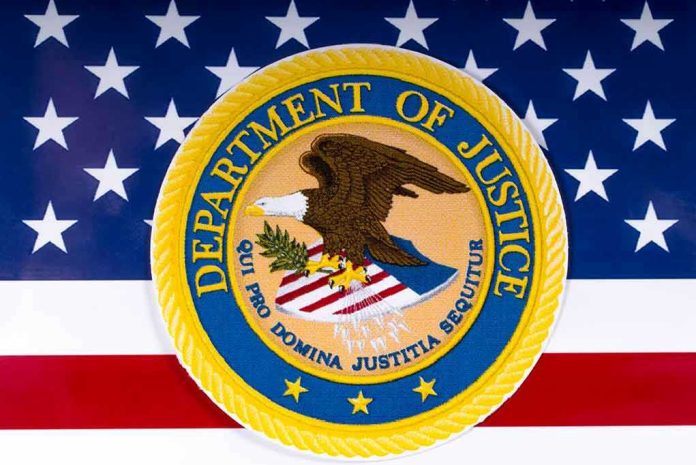🔴 Website 👉 https://u-s-news.com/
Telegram 👉 https://t.me/usnewscom_channel
In a move that has left the open-borders crowd stunned, the Justice Department has wasted no time reversing nationwide injunctions after a Supreme Court victory that finally puts an end to the judicial activism blocking the president’s agenda in the name of “universal” justice.
At a Glance
- Supreme Court rules 6-3 to end the use of nationwide injunctions by federal courts
- Justice Department quickly rolls back injunctions, clearing way for Trump administration policies
- Birthright citizenship order can now be implemented except for named plaintiffs
- Advocacy groups forced to pursue individual or class action relief, not blanket nationwide blocks
- Decision expected to lead to fragmented legal battles and increased executive authority
Supreme Court Delivers Blow to Judicial Overreach
The Supreme Court’s ruling in Trump v. CASA, Inc. has finally pulled the plug on the era of “universal” injunctions, where unelected judges could single-handedly freeze the entire country’s laws with the stroke of a pen. The 6-3 majority, led by Justice Amy Coney Barrett, declared that federal courts may only grant relief to the actual parties before them, not the entire nation, unless a class action is certified. The days of one judge in California dictating national immigration or healthcare policy are officially over. This decision rebalances the separation of powers, restoring some long overdue sanity to a system that had been hijacked by activists with the power to block the will of the electorate nationwide.
The Department of Justice, seizing this opportunity, has already begun reversing the array of nationwide injunctions that had been jammed into place by lower courts. The Trump administration’s Executive Order No. 14160, which narrows birthright citizenship, is now back on track everywhere except in the narrow cases of the named plaintiffs. No more blanket judicial vetoes. No more activist shopping for friendly courts to halt the entire conservative agenda. The ruling isn’t about the merits of the birthright citizenship issue itself, but about who holds the power to stall policy for an entire country—hint: it’s not a single district judge anymore.
Justice Department Moves Fast to Resurrect Blocked Policies
The DOJ has wasted no time following the Supreme Court’s lead, moving swiftly to implement Trump administration policies that had been previously frozen by judicial fiat. Policies on immigration, executive orders, and more are now rolling out with unprecedented speed, as legal challenges can only block enforcement for the specific plaintiffs involved—not the whole country. The days of activist judges acting as a one-man Congress are over.
This change is forcing advocacy groups and left-wing organizations to rethink their legal strategies. No longer can they find a single sympathetic judge and win a nationwide block. Now, they’re forced to do the hard work—organize class actions or litigate state by state. It’s a victory for common sense, for constitutional order, and for Americans who are tired of watching their votes and voices nullified by judicial overreach. The Trump administration’s birthright citizenship order, for example, remains under challenge, but only for the handful of named plaintiffs—not for all 330 million Americans.
Fragmented Legal Landscape and the Path Forward
The end of universal injunctions will bring a new kind of legal landscape—one where enforcement of federal policies may vary by jurisdiction, depending on which plaintiffs win their cases. This may sound messy, but it’s a return to the constitutional principle that courts decide actual cases, not abstract policy for the entire country. Plaintiffs wanting broad relief now have to pursue class action status—a higher bar that requires real, demonstrated harm to a group, not just a political dislike of a policy.
For the Justice Department and executive agencies, the decision means fewer obstacles to enacting the policies that Americans voted for. For advocacy groups, it means more work, more litigation, and less grandstanding in the media. The left’s favorite tactic—using the courts to achieve what they couldn’t win at the ballot box—is on life support. For everyday Americans watching the spectacle, it’s a long-overdue correction. Now, the people who make the laws are the ones you actually voted for—not the ones with lifetime appointments and zero accountability.
